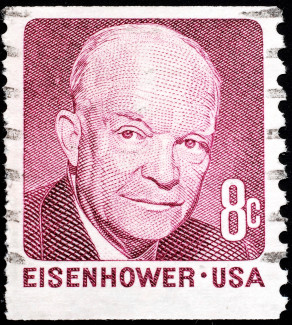
Johns Hopkins UniversityEst. 1876
America’s First Research University
Eisenhower: Becoming the Leader of the Free World with Louis Galambos

Eisenhower: Becoming the Leader of the Free World
Republican presidents come in all sizes, shapes, and temperaments. They have different backgrounds, different careers, and different ways of dealing with the crises they inevitably face during their time in the White House. Dwight “Ike”Eisenhower (1953-1961) was the only one since 1900 to have been a lifetime professional soldier and the only one to become the unchallenged leader of the free world – that is, the non-communist half of the world.
After spending many years editing Ike’s papers, I thought I knew everything I could possibly know about the man. So I set out to write a book based on what I had learned by editing and co-editing sixteen hefty volumes of his correspondence, memoranda, diary entries, and other papers. Since our editorial project had focused exclusively on the years since 1941, when the United States entered WWII, I started my research by looking into Ike’s early life and career. I was surprised by what I found.
You too may be a bit surprised if you follow my trail to Ike’s family in Texas, where he was born in 1890, and to Abilene, Kansas, where he spent most of his boyhood. Expecting to find the early traces of a dominant leader, I discovered instead that as a young man he carried the nickname “Little Ike” and was overshadowed in every way by his older brother. This, and his difficult relations with his father, left Eisenhower with a dis-orientation toward authority – a handicap for a young man who went to West Point to be trained as an officer in the U.S. Army.

His military career dragged along until he met the first of the two mentors who would reshape his professional identity and slowly recast his reputation in the Army’s stodgy bureaucracy. Fox Conner and George Marshall guided Eisenhower toward the top ranks of the army and toward service with Chief of Staff Douglas MacArthur in the 1930s. In the Philippines with MacArthur, Ike experienced the first of two dramatic Machiavellian Moments that impacted his approach to authority and his leadership style. No longer the naïve boy from Abilene, he would from time-to-time engage in his own cunning and deception – all behind that sunny smile for which he became famous.
As Supreme Commander in the Mediterranean and then the European campaigns, Eisenhower mastered the art of holding an alliance together. The same political skills would come into play after the war, when he served as Army Chief of Staff, then briefly as President of Columbia University, and as Supreme Allied Commander of NATO forces in Europe. Despite this array of experiences, he still had much to learn about partisan politics in America after he was nominated as the Republican candidate for the presidency in 1952. Learning, adjusting to new challenges, understanding new technologies, and coping with the interest groups he hated, President Eisenhower (1953-1961) led the nation through eight chilly years in the Cold War.
Throughout, Ike stayed on what he called “The Middle Way,” a path filled with coalitions, careful planning, and compromises. He was satisfied in 1961 that he had helped the United States achieve both prosperity and peace. You can decide whether he was right by reading Eisenhower: Becoming the Leader of the Free World. If you do, you can also find out about Ike’s Machiavellian Moments and decide whether you have had any of them as you were becoming the person you are today.
Louis Galambos is a professor of history at Johns Hopkins University. He is the editor of The Papers of Dwight David Eisenhower. He is also the author of Eisenhower: Becoming the Leader of the Free World


